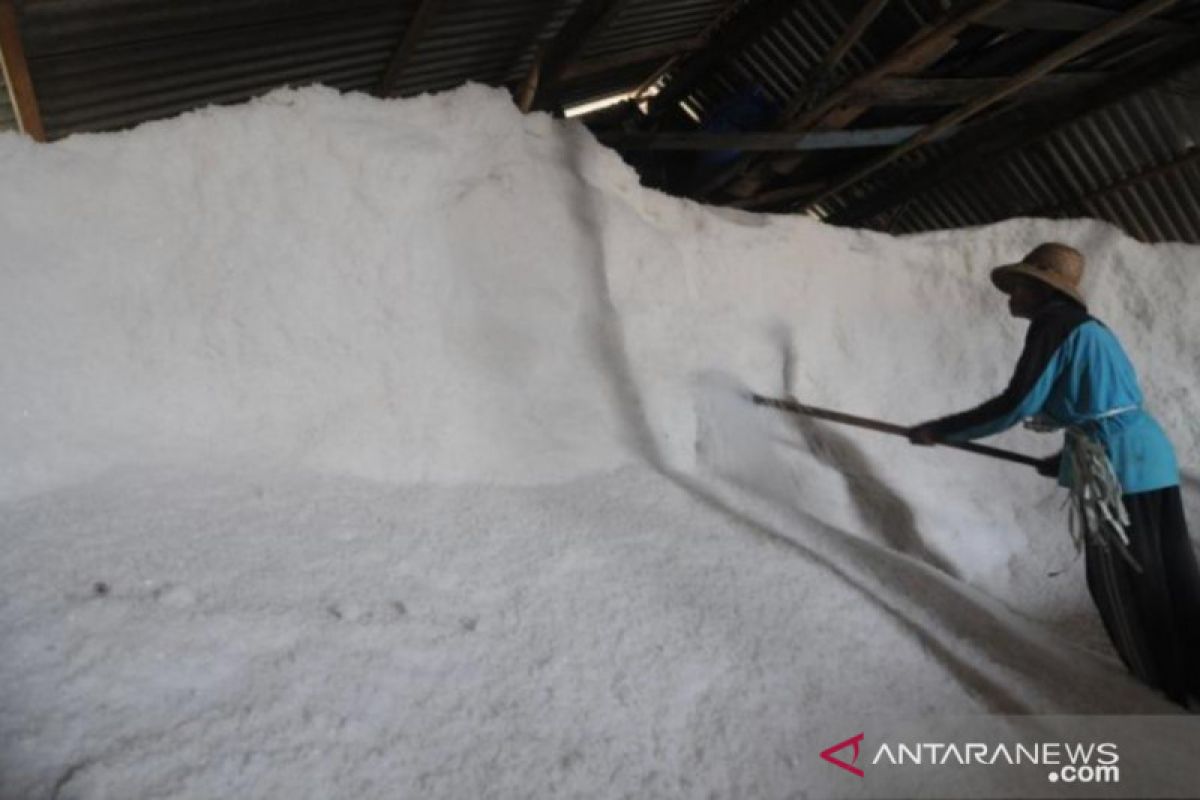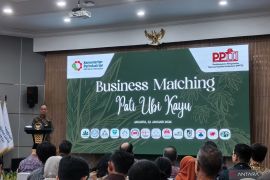"Salt imports for industrial use can only be made by producer importers (API-P). For the CAP industry and cosmetic (and) pharmaceutical sectors, salt can only be imported by industrial users directly," Industry Minister Agus Gumiwang Kartasasmita informed in Jakarta on Friday.
All industries requiring salt imports now need to apply through the system, and their application is verified by the Ministry of Industry through an independent verification agency, he informed. Furthermore, the results of the verification are discussed through a coordination meeting.
The Chlor Alkali Plant (CAP) industry or the basic chemical industry utilizes salt as a raw material for producing products such as PVC pipes, cables, pulp, paper, and caustic soda, among others.
Meanwhile, the pharmaceutical industry uses salt as a raw material to produce infusions, hemodialysis fluids, medicines, and injections, among others.
In the food sector, salt is imported by the salt processing industry in the form of coarse salt, which is then processed into fine salt or finished salt, according to the specifications required by food and beverage industries.
"This processed salt is distributed to the food and beverage industry, which requires salt as raw material to produce seasonings, instant noodles, snacks, biscuits, and others," the minister explained.
The salt processing industry that imports for various food sectors is also required to absorb locally produced salt, as mandated by the Minister of Industry through Regulation Number 34 of 2018, which can then be processed into consumption salt or industrial salt using local raw materials.
Related news: KSP oversees restoration of Cirebon mangrove, roadway for salt farmers
Currently, imported salt is only used for three industrial sectors, namely CAP, pharmaceutical and cosmetic industries, and food industries, which require high-quality industrial salt.
Salt for the industry must contain 97 percent sodium chloride (NaCl), have low impurity, and must have adequate supply from abroad, with guaranteed supply continuity, and competitive prices since the final product is not only used for domestic needs but also for exports.
This quality improvement must be encouraged from the upstream process of salt production by farmers by maintaining the consistency of the salt production period to obtain optimal results, with a minimum NaCl content of 94 percent for consumption salt, and a minimum of 97 percent for industrial salt.
"For this reason, the salt processing industry must improve the quality of processed local salt through modern technology-based salt processing to be accepted by the industry," the minister said.
Related news: Industries agree to absorb 1.05 mln tons locally produced salt
Translator: Sella Panduarsa G, Resinta S
Editor: Rahmad Nasution
Copyright © ANTARA 2022












